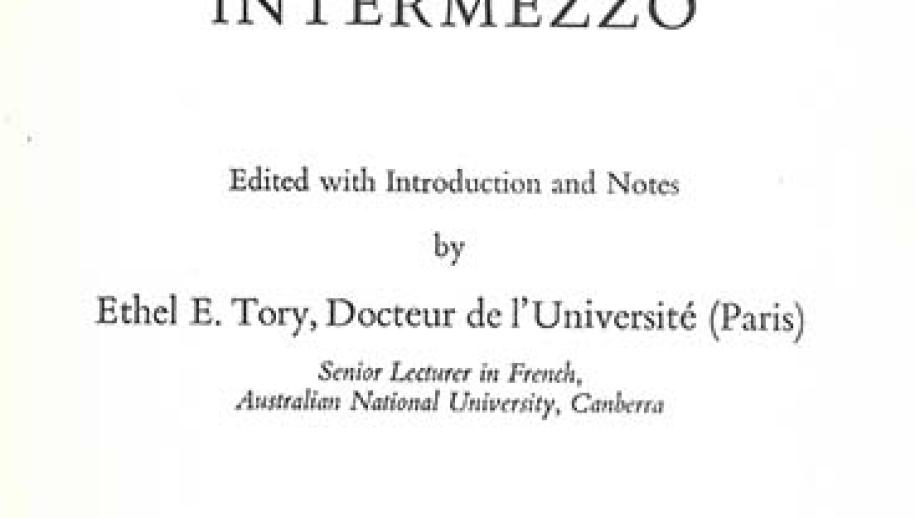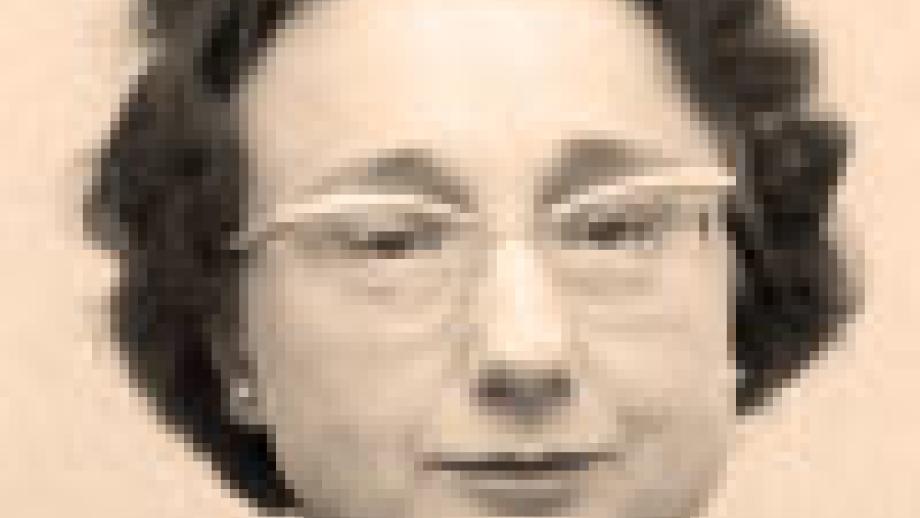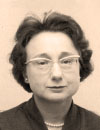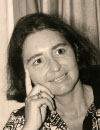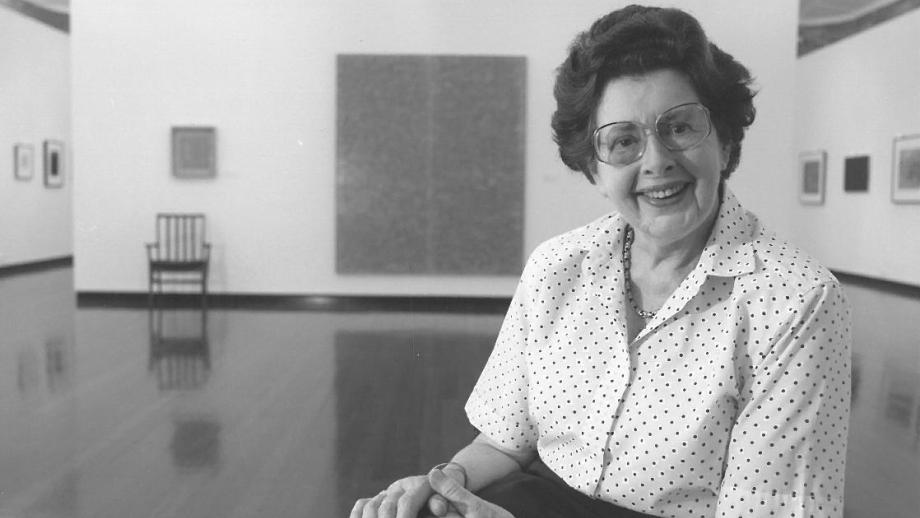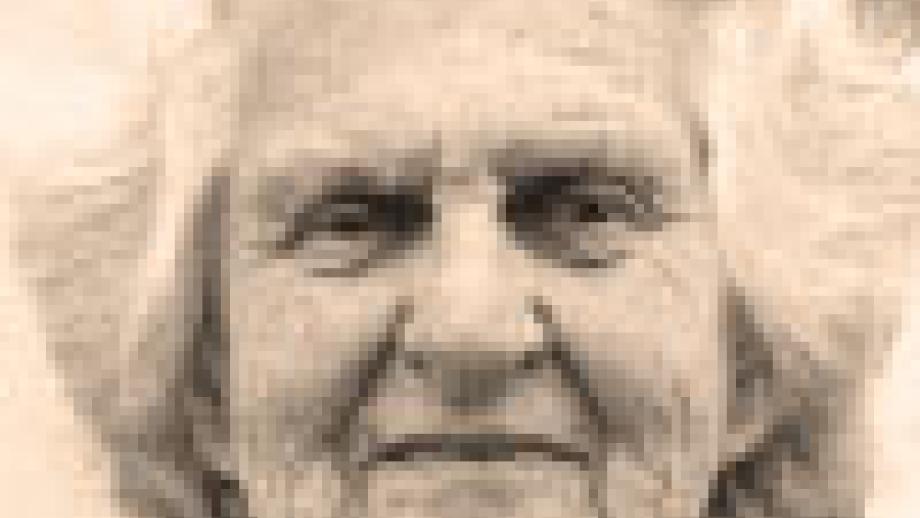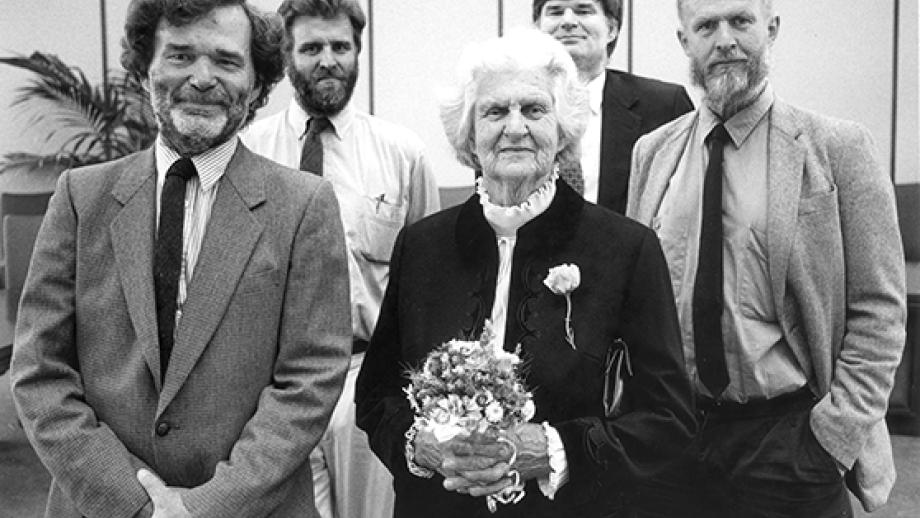Academics
Ethel Tory
Ethel Tory was a teacher of French and Latin and an advocate for drama and language studies, particularly French. She taught French and Latin in Western Australian schools and at the University of Western Australia before undertaking further study in French literature in Paris. She was appointed a lecturer in French at the Australian National University in 1961 and promoted to Senior Lecturer in 1965. In 1970, Tory published an edition of Giraudoux's play Intermezzo for use in schools and universities. She retired in 1977 but continued to teach French and to support drama studies at the Australian National University through donations and a bequest on her death in 2003.
Helen Hughes
Educated at Melbourne University and the London School of Economics Helen Hughes taught at the universities of New South Wales and Queensland before becoming Senior Fellow in Economics in the ANU’s Research School of Pacific Studies in 1963. In 1968 Hughes left the ANU for the World Bank where she stayed for 15 years. Returning to Australia in 1983 Helen Hughes was appointed Professor of Economics and Director of the Development Studies Centre at the ANU.
From 1994 to 1995 Helen Hughes was a Professorial Fellow and directed a full employment project at the Melbourne Institute of Applied Economic and Social Research at Melbourne University.
She is currently an Emeritus Professor of Economics at ANU and a Senior Research Fellow at the Centre for Independent Studies, recently focusing on issues of development in the Pacific and in Australia’s remote Indigenous communities.
Helen Hughes was made an Officer of the Order of Australia (AO) in 1985 for her service to international relations, particularly in the field of economics. In 2001 she was awarded the Centenary Medal, for her service to economic policy, particularly poverty alleviation and economic development.
Marian Sawer
As an early-career academic, Marian Sawer experienced first-hand the difficulties encountered by women in a male-dominated workplace. After establishing equal employment opportunity programs at the Australian National University and the Department of Foreign Affairs in the 1980s, she pursued an academic career as a political scientist at the University of Canberra and the Australian National University, becoming head of the Political Science Program in the Research School of Social Sciences at the Australian National University in 2000 and being promoted to professor in 2003. From 2002 to 2008 she led the Democratic Audit of Australia which assessed the health of Australian democracy and produced over 200 discussion papers and reports. Marian took a leading role in Women’s Electoral Lobby campaigns in the 1980s and 1990s, particularly around equal opportunity legislation, women’s policy machinery and tax reform. She has authored or edited around twenty books, including a history of the Women’s Electoral Lobby.
Pauline Griffin
Pauline Griffin completed a Bachelor of Arts from the University of Sydney in 1946 and a Diploma of Social Studies in 1947. She was a social worker with the Local Board of Health, City of Adelaide 1947-1949, and with the Commonwealth Department of Immigration 1949-1951. Griffin became personnel manager for Bradmill Industries Ltd 1953-1973 and for Ethnor Pty Ltd 1973-1975. She was appointed to Commissioner of the Australian Conciliation and Arbitration Commission and the Industrial Relations Commission 1975-1990. During this period she was a member of the Commonwealth Committee of Inquiry into Education and Training 1976-1979, Chair of the National Committee on Discrimination in Employment and Occupation 1982-1986 and appointed to the Australian National University Council in 1978.
Her involvement with the ANU included her appointment as the University Pro-Chancellor in 1991 until her retirement from this position and from Council on 13 November 1998. She was chair of the National Committee on Discrimination in Employment and Education and a member of the 4th National Women’s Consultative Council in the 1990s. Pauline was a member of numerous University committees including the Higher Degrees Committee 1990-c.1993, Governing Body of Fenner Hall 1992-1998, Deputy Chair, Appeals Committee 1993–c.1995, Chair, Appeals Committee 1996–1998; Chair, Public Affairs Committee 1996–1999; Building and Grounds Committee 1999–2000; Chair, Foundation for the Visual Arts 2003–2005. Pauline was appointed a Member of the Order of Australia (AM) in 1988 for her service to industrial relations and to the community.
Dorothy Green
In the 1950s Dorothy Green wrote to a friend, ‘I am now rising forty two and looking back on my life, I find have spent the greater proportion of it doing things I didn’t want to do at all.’ Nearly thirty years later she felt ‘nothing has changed’. Yet during the course of her long life, Dorothy Green produced poetry, literary criticism and journalism and taught and shaped the lives of many students.
With a Bachelor of Arts in English, French and Philosophy and a Master of Arts with Honours in English, Dorothy worked as an ABC broadcaster and journalist in Sydney, Brisbane and Canberra from 1942 to 1949 then as co-principal of the Presbyterian Girls’ College in Warwick, Queensland from 1955 to 1960. In 1961 she became the first female lecturer at Monash University, lecturing in literature. Her teaching career included positions at both the Australian National University (1964-1972) and the Australian Defence Force Academy (1979-1987).
She was also politically active, especially later in her life, when she was a founding member of Writers against Nuclear Arms and an ardent environmentalist. Dorothy published several books of poetry and numerous works of literary criticism and wrote a study of the work of novelist and short story writer, Henry Handel Richardson. In 1984 Dorothy Green was awarded the Medal of the Order of Australia (OAM) and in 1998 was made an Officer of the Order of Australia (AO) for her service to literature, teaching and writing.
Dymphna Clark
Born to Belgian and Scandinavian parents, Hilma Dymphna Lodewyckx grew up surrounded by languages which, combined with a natural talent, saw her master over eight languages and become a successful linguist. Her most ambitious and important work was a translation from German to English of Baron Carl von Hugel's New Holland Journal.
After meeting her future husband, Manning Clark, at Melbourne University, the couple journeyed to Germany and England respectively, to continue their studies. They married in Oxford in 1939 and returned to Australia to escape the war in Europe.
The Clarks eventually settled in Canberra where Manning took up a position at what would become the Australian National University. Dymphna worked to raise her young growing family and establish their home as a warm welcoming space for friend and colleagues, as well as assisted Manning with translations and editing his historical works. By 1959 Dymphna returned to teaching, eventually taking up a position at the ANU’s German Department. She was also an activist for aboriginal rights and the environment. After Manning’s death in 1991, Dymphna worked tirelessly to turn the home they shared into Manning Clark House – a cultural hub for scholars, artists and writers. Today Manning Clark House still plays a vital role in the Canberra community




